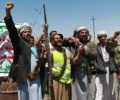Iran cozies up to America as post-deal era begins
Camelia Entekhabi-Fard/Al Arabiya/September 08/15
In a post-nuclear deal era for Iran, finding political solutions for most of the region’s crises appears to be what Tehran is willing to do, while opening up to its Arab neighbors. After the deal was struck in July, Iran’s foreign minister urged Gulf Arab countries to join forces with Tehran to fight against extremism and militancy in the Middle East. Meanwhile, Saudi Foreign Minister FM Adel Al- Jubeir has recently said that the kingdom was satisfied with President Barack Obama’s assurances over the nuclear deal, adding that he be-lieves the deal will contribute to security and stability in the Middle East.
The international community is becoming increasingly encouraged to engage Iran with its neighbors to find a political solution to the crises in Yemen and Syria I believe the international community is becoming increasingly encouraged to engage Iran with its neighbors to find a political solution to the crises in Yemen and Syria, which today have become global disasters, stretching far beyond these countries’ borders. This may mean cozying up to the U.S. even more in the post-deal era, especially as the White House has said that sanctions relief for Iran is tied to compliance with the agreement.
Speaker of the Iranian parliament Dr. Ali Larijani was visiting New York early September to attend the Fourth World Conference of Parliament Speakers in the United Nations. Larijani found the visit an opportunity to praise President Barack Obama for being “wiser” than his predecessor in negotiating a diplomatic resolution to the Iranian nuclear file. Interestingly, Dr. Larijani’s brother – Ayatollah Sadegh Larijani – is one of the most powerful political figures in Iran. As the head of judiciary, Ayatollah Larijani representing the conservative side of the regime in Tehran.
Prisoner swaps?
One of the main concerns from Obama’s administration has been the fate of the three Americans in prison in Iran on charges of espionage. In another indicator Iran wants to get closer to Washington, Ali Larijani has said there were “practical ways” to free Jason Rezaian, the Washington Post’s correspondent in Tehran, and that a prisoner swap was one possible option. “For example, there is a number of Iranians in prison here (in the U.S.) Definitely for matters of this sort, one can come up with solutions. I think your politicians know about those ways,” he told NPR, speaking through an interpreter. When the interviewer asked whether he was referring to a prison swap, Larijani replied: “That’s one way.
There are other ways that the judiciary systems of the two countries can come up with. It is the judiciary that has to decide about it.”Not long ago, Iranian Deputy Foreign Minister Hassan Qashqavi, was quoted by Iran’s ISNA news agency as saying Tehran was not considering a prisoner exchange. No official in Tehran has publicly opposed Ali Larijani remarks about the prisoner exchange yet and if his proposal has been given the nod by his brother Ayatollah Larijani, than it would be wise to expect a deal towards the end of the year
Gulf intervention in Yemen and the concept of deterrence
Abdulrahman al-Rashed/Al Arabiya/September 08/15
The painful loss of 45 Emirati, 10 Saudi and five Bahraini soldiers in Yemen last week confirmed the seriousness of the commitment to jointly confront the region’s dangerous circumstances, which are becoming more difficult for everyone. The importance of Gulf political and military cooperation is not only in winning wars, but more so to solidify the concept of deterrence. The cost is very high for the other party against a joint force. There has been regional chaos since 2011.
It will probably continue for the next few years, and result in more threats to the region’s countries. This necessitates Gulf cooperation to prevent foreign interference and the spread of chaos. Regional shifts and chaos are due to regional conflicts such as Iran versus the Gulf, but also due to internal conflicts such as the Muslim Brotherhood against the Egyptian state, Houthi rebels and former President Ali Abdullah Saleh against the legitimate government in Yemen, the Syrian opposition against the Assad regime, the Libyan government against armed opposition groups. Another factor is the emergence of the Islamic State of Iraq and Syria (ISIS) and Al-Qaeda destabilizing Syria, Iraq, Yemen, Libya and their neighbors.
Defense
The sanctity of borders has practically collapsed, and the generally accepted rules of engagement are no longer respected. Regional countries no longer have the choice of dissociating themselves. Their options have become few – their most notable one is to defend themselves, as with the Gulf states vis-a-vis Yemen, Turkey in regard to Syria, and Egypt in regard to Libya.
This is in addition to hedging against possible threats and wars, like Jordan is doing vis-a-vis Iraq and Syria. Another important factor is Iran’s direct and major military interference – for the first time in its modern history, it is involved in two wars in Arab countries: Iraq and Syria. We must also not underestimate the importance of the humanitarian crises in Syria, Iraq, Yemen and Libya. Gulf countries can establish a diverse force capable of defending themselves and their interests beyond Yemen.Regional powers are engaged in regular and multiple battles. This exhausts states, armies, people and governments’ financial resources.
The status quo highlights the importance of cooperation. Saudi-Emirati military and political cooperation has reached an unprecedented level in the history of the Gulf Cooperation Council (GCC), reaching its peak in the war in Yemen. With Qatar’s military involvement in Yemen, and Bahrain before it, Gulf countries can establish a diverse force capable of defending themselves and their interests beyond Yemen. This is the first time that there is cooperation without standing behind a superpower, such as the war to liberate Kuwait 25 years ago. Gulf countries’ power is also increasing in the diplomatic and economic realms.






















